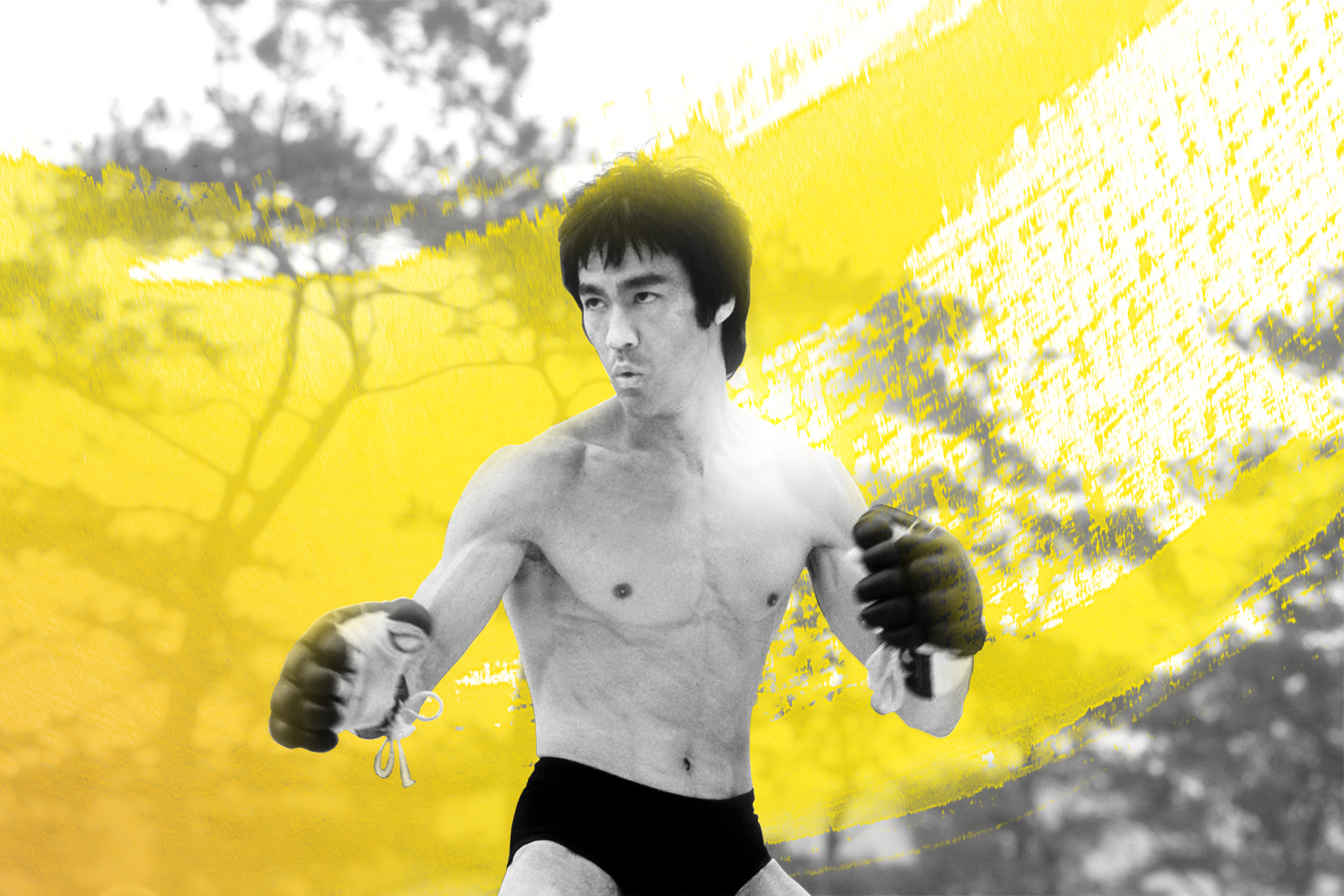#61 Confrontation
When Bruce talked about confrontation he was talking about it on two levels, physical confrontation and then confrontations between people in everyday life.
As you become ore rooted and secure in yourself, the natural tendency is to feel that you can more easily avoid confrontation, that you don’t need to prove yourself.
Bruce often said to avoid trials of skill because they begin as friendliness but end in antagonism. Eliminate all opportunities for rivalry. Bruce didn’t believe in competing, he believed in being present in the moment and real life application and didn’t believe in competition for sport. The best thing you can do when you’re challenged, look at why you’re being challenged. Try to avert that challenge in some way or take a pause and assess that challenge and study yourself. If a part of you is being triggered during confrontation, look at that and study why you’re being triggered.
What Bruce has learned from being challenged is: What is your reaction to being challenged? How does it affect you? If you’re secure then you treat it lightly. Part of being able to handle confrontation is self-work.
“Wisdom does not consist in trying to wrest the good from the evil but in learning to “ride them as a cork adapts itself to the crests and troughs of the waves.””
Right now a lot of our culture is being “against” something (such as the “war against _”) and that we have to go out and beat this thing. Even if it’s something that is truly terrible, the energy of trying to battle it is definitely the opposite of what Bruce was saying in this moment. Get to the place where you’re so secure you’re not going to react to this confrontation in some extreme, unskilled way.
“The great mistake is to anticipate the outcome of an engagement, you ought not to be thinking whether it ends in victory or defeat.”
The moment that you are in that place of confrontation, and suddenly you're thinking, “Ok, I’m going to win this,” you become disengaged from what’s really happening. You get too in your head with plotting and planning,
It’s fine to visualize a victory and prepare mentally before you get into a situation, but in the moment of confrontation you don’t want to depart into your head. You want to stay present and stay in your groundedness. If you’re very secure with yourself and able to not flee into your mind or emotions, you’re able to take a step back and create space to assess the situation.
A lot of times confrontation has nothing to do with you and has to do with the other person being wrapped up in something that triggers them.
If you’re in an insecure place, then anything someone says that could be critical, it goes straight to that wound in your heart and you start getting really agitated because you start thinking all these things that person isn’t intending. You go to that scared place and then everything can escalate out of control.
If you’re able to listen and observe, there becomes an opportunity to settle the issue.
“A struggle of any nature can never be settled satisfactorily until the absolute fact is touched.”
You have to be willing to touch the part that hurts and ask what is that? The other person might be triggering that pain, but they’re not causing the pain. To know that about yourself is great wisdom.
“See that there is no one to fight, only an illusion to see through.”
Often, these confrontations are issues or self-hurts that people are carrying around that they don’t know what to do with. Without resolving those issues within yourself, you can be doomed to repeat the same argument for years. If you find yourself having the same argument over and over, it might not be the other people; it might be you not addressing a hurt within yourself.
“Intelligence, intelligence, is sometimes defined as the capacity of the individual to adjust himself successfully to his environment or to adjust the environment to his needs.”
Instead of going this is right or wrong, black or white, ask what’s going on. How can you adjust yourself to the environment or adjust the environment to you? This kind of inquiry can help you move through your life more smoothly.
If there is a confrontation presented to you, you want to wait a beat before reacting.
“Who is there that can make muddy water clear? But if allowed to remain still, it will become clear of itself. Who is there that can secure a state of absolute repose, but keep calm and let time go on and the state of repose will gradually arrest.”
It’s not about what happens, it’s about your reaction to what happens. It’s not a sign of weakness to stay calm and not respond to someone who is be aggressive towards you, it’s a sign of strength and patience.
You don’t have to prove to anyone that you are secure in yourself, you just have to continue following your own path.
It’s a great show of strength to respond calmly and thoughtfully when someone is coming at you full force trying to engage you or attack you. Such as when they’re attacking and you say nothing, and then say, “Well, I’m going to think about that and come back to you.”
“There’s nothing that will enable you to pursue your course in greater peace than the patient bearing of insults. Patience is not passive. On the contrary, it is concentrated strength.”
It takes a lot of patience to practice this way of dealing with confrontation.
Sometimes we can approach confrontation as an effort to change someone else, but you don’t speak and communicate to try and change someone, you communicate to express yourself and whatever you need to release.
It’s not what you say, it’s how you say it. You can say a difficult thing, but when you say it with kindness it has a better chance of being received.
“It’s not a shame to be knocked down by other people, the important thing is to ask when being knocked down, why am I being knocked down? If a person can reflect in this way, there is hope for the person.”
We all get into confrontations where we end up being the battered by people, rightfully or wrongfully, and it’s important to ask why that happened. Where you in the wrong? Or was it solely the other person? How can you navigate that relationship better? Is this a confrontation you have repeatedly with different people? Or is it just this one person?
Relationship is the mirror in which you discover yourself. How are you in relationship? We are all in relationship with something or someone.
If suddenly something you’ve been doing for a long time stop working for you, it’s time to learn something new, adapt and grow. Just because something worked for you in the past doesn’t mean it will always work for you.
“Whether I like it or not, circumstances are thrust upon me, and being a fighter at heart, I sort of fight it in the beginning, but soon realize what I need is not inner resistance, and needless conflict, but rather to join forces and readjust and make the best of it.”
A lot of us hurt ourselves with inner resistance, which leads to self-judgment and attacking ourselves, and it becomes a downward spiral.
“Why add the tension of extreme emotion to a situation which is illusion of a passing moment. Do what seems to be wise to be done, forget it and walk on. Walk on and see a new view, walk on and see the birds fly, walk on and leave behind all things that would damn up the inlet or clog the outlet of experience.”
Sometimes we get too comfortable in that clogged space, and it’s hard to move beyond it, but you have to walk on.
These ways of dealing with confrontation with other people can also be used in confrontations with ourselves.
Most of the time when Bruce was talking about confrontation, he was talking about physical confrontation. When someone is actually attacking you, you can discover your emotional response to confrontation, it’s an amplified reaction of how you feel in other non-physical situations of confrontation.
“If you want to see an opponent clearly, you must throw away prejudices, likes, and dislikes, and so forth. Then, your mind will cease all conflict and come to rest, in this silence, you will see totally and freshly.”
Take Action:
Start with noticing your response to confrontation and conflict. What is going on within you? What can you learn about yourself? Can you give yourself that pause and let the muddy waters clear so that you can act from a place of clarity? Do you retreat? Hide? Or do you go straight for the jugular? Once you have clarity on your reactions, you can move on to the next level: is clear communication possible or is it time to walk on?
If you’d like to share how you’re doing with this action item you can email us at hello@brucelee.com.
#AAHA
(Awesome Asians and Hapas)
Tamlyn Tomita
Tamlyn Tomita is a Japanese born American actress. She made her acting debut in The Karate Kid Part II and was also in The Joy Luck Club, Four Rooms, and Day After Tomorrow. Born in Okinawa, Tamlyn is also ¼ Filipino. Her father was a distinguished Japanese-American who was interned at Manzanar, California during part of WWII and he later became a Los Angeles police officer. Recently, Tamlyn was in the news for standing up against the white washing that’s been happening in Hollywood. Tamlyn was sent a script that she found extremely offensive, and she spoke out publicly about how terrible the script was and how it used offensive Asian stereotypes for the characters. We think it’s awesome that she stood up for herself and her heritage, much in the way Bruce Lee did, especially because it’s difficult to get roles as a minority in Hollywood. We think you’re awesome Tamlyn!
#BruceLeeMoment
This week our #BruceLeeMoment comes from listener Karen M.:
“Shannon and Sharon thank you for this podcast about Bruce Lee and his thoughts and routines.
I have been struggling with Add/ADHD and dyslexia may entire life 55 years.
I have always been on edge feeling like I have not been good enough because of my disabilities. Listening to your podcast about Bruce Lee has given me a chance to look at things in a different way. Letting me know that it's ok if i have to do things a different way. To be the best me possible. I get nervous all the time because I don't believe I can bring something good to the table. It will take time but I can see that there is a way for me to be me and not judge myself so much. Thank you for giving me the first step. You guys are wonderful. Keep up the great work. Huge fan of both of you and of course the master himself Bruce Lee
Karen M.”
Share your #AAHA and #BruceLeeMoment recommendations with us via social media @BruceLee or email us at hello@brucelee.com.


